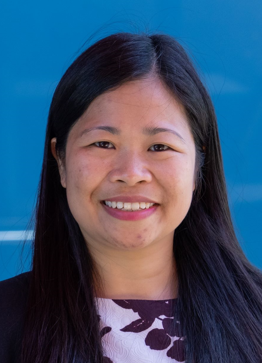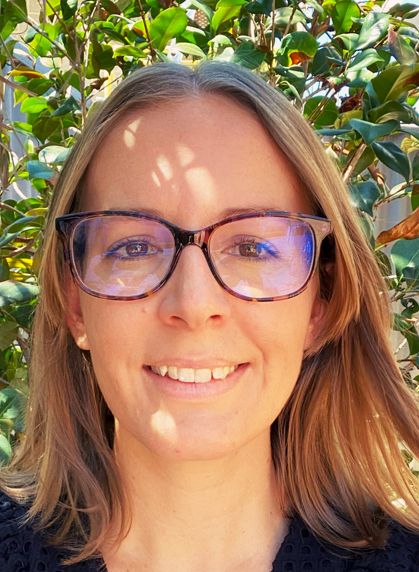Please note that this event is face to face only
it will not be streamed nor will it be recorded
Hear early career researchers speak about new ageing research:
 Pelden Chejor
Pelden Chejor
PhD student, Centre for Research in Aged Care
School of Nursing and Midwifery, Edith Cowan University
Pelden Chejor is a PhD student with the Centre for Research in Aged Care in the School of Nursing and Midwifery, Edith Cowan University (ECU), Western Australia. He is a pharmacist by training with a Master of Public Health degree from ECU. His research focuses on understanding the experiences of culturally and linguistically diverse people living with dementia and the impact of culture and language on the expression of neuropsychiatric symptoms and pain characteristics of dementia.
Presentation 1: “Exploring the characteristics and experiences of people living with dementia using secondary data: a multi-method study”.
- Understand the unique care experiences of older immigrants living with dementia in Australia.
- Appreciate differences in pain and neuropsychiatric symptoms of dementia between immigrants and non-immigrants living with dementia.
- Understand how language and culture contribute to pain expression and neuropsychiatric symptoms for people living with dementia.
Older immigrants are at increased risk of dementia due to age-related chronic diseases, cultural and linguistic barriers, and differing health beliefs. Living with dementia is challenging and understanding the experiences of people living with dementia is critical. I will present on the dementia care experiences of older immigrants in Australia analysed using the Royal Commission into Aged Care Quality and Safety data. The impact of culture and language background of an individual living with dementia on pain experience and neuropsychiatric symptoms of dementia, and how these differs between immigrants (English-speaking and non-English-speaking) and non-immigrants living with dementia will be emphasised. The importance of secondary data as a valuable source of information for dementia care research will be discussed.
 Hien Thi Nguyen
Hien Thi Nguyen
Post-doctoral Research Fellow, Social Ageing (SAGE) futures Lab
School of Arts and Humanities, Edith Cowan University
Hien is a postdoctoral research fellow at the ECU Social Ageing (SAGE) Futures Lab. She has over 16 years of experience working as a social researcher and development practitioner in Vietnam and Australia. Her scholarship includes migration, ageing, diversity, gender, and community development. Her current research questions focus on social care solutions, with a particular focus on social frailty prevention and reduction among culturally and linguistically diverse (CaLD) communities to promote their health outcomes and wellbeing.
Presentation 2: “Social relational notions of successful ageing: contesting dominant individualised conceptions of successful ageing by examining migrant intergenerational lived experiences”.
- Discover how dimensions of individual, social, and cultural factors are important in successful ageing for migrant populations.
- Learn about how social-relational aspects and the quality of intergenerational relationships contribute to successful ageing.
Critiques of the concept of successful ageing include attention to its foundation on an individualised western medical approach that emphasizes personal choice, agency, and lifestyle. However, this approach tends to overlook the socio-economic and cultural contexts of successful ageing. This presentation illustrates how individual perceptions of successful ageing can be linked to, and coconstituted by, relational and intergenerational notions of personhood within the broader socioeconomic and cultural contexts of migration. Among Vietnamese migrants, three dimensions of successful ageing emerged as significant: family fulfilment, individual achievements, and social engagement and protection. Of the three, family fulfilment is recognised as the most crucial while the two others are rendered meaningless without the former. Vietnamese migrants' understandings of successful ageing were inherently social-relational, intricately connected to the quality of intergenerational relationships and intertwined with other cultural elements.
 Rebecca Bullingham
Rebecca Bullingham
PhD student, Edith Cowan University
After graduating with a Bachelor of Science majoring in Psychology and Human Biology in 2021, Rebecca Bullingham completed a Masters of Medical and Health Science by Research in 2023. Rebecca's research focuses on the experiences of grandparents providing grandchild care. Her current project explores the relationship between motivations to provide grandchild care and the health outcomes for grandparents. Rebecca has presented this research at national and international conferences and was successful in applying for a Research Training Program Scholarship Stipend to complete her PhD at ECU.
Presentation 3: "Why do Grandparents Care?"
- Learn about the relationship between motivation and health outcomes.
- Explore the potential health benefits and challenges for grandparents understanding how to balance their own health with supporting their family.
Grandparents providing grandchild care often experience health benefits, however, recent studies reveal inconsistent findings. An unexplored explanation is that grandparents have different motivations, autonomous and obligatory, which may moderate the association between grandparenting and health. Employing a mixed methods design, the study explored grandparents' experiences of providing grandchild care. Findings revealed grandchild caregiving was enjoyable, and grandparents were autonomously motivated to help. Grandparents reported feeling appreciated and having control over the amount of caregiving. Overall, grandparent health was good, however, a common physical challenge for grandmothers was tiredness. Maintaining employment was also difficult for grandmothers, forcing many to reduce their hours or retire. Future research must explore grandparent motivations to understand how grandparents balance healthy ageing with the challenges of providing childcare.
 Mayumi Kumarage
Mayumi Kumarage
PhD student, Centre for Research in Aged Care
School of Nursing and Midwifery, Edith Cowan University
Mayumi is a PhD candidate and a research assistant at the Centre for Research in Aged Care, at the School of Nursing and Midwifery, ECU. She completed a Masters in Bio-Statistics at the University of Peradeniya, Sri Lanka. She has worked as an Intensive Care nurse and Research Assistant at multiple universities in Sri Lanka. Mayumi previously conducted research in the area of Dementia and aged care. Her current research interest is about end-of-life planning and predicting the mortality risk.
Presentation 4: “Exploring the Use of a Mortality Assessment Tool to Plan End of Life Care for Older Adults at Home in Western Australia“.
- Understand the importance of early identification of risk of mortality during EOL care at home.
- Learn about the importance of implementing a mortality risk prediction tool (MMRI-R) in standard WA home care setting.
The majority of older people would prefer to have a peaceful death experience at home during the last stage of their lives. Planning End-of-Life (EOL) care at home is key to enabling a good death at home. To ensure this, it is important to recognise the likelihood of death and prompt initiation of EOL conversations. The Minimum dataset Mortality Risk Index - Revised (MMRI-R) was initially developed to predict 6-month mortality for older adults. This study aims to evaluate the integration of the MMRI-R into the standard home care practice in WA while exploring individual experiences and perceptions on using the tool to plan EOL care at home.
Visitors can park at the Ground floor car park
Mobility access available
Nibbles and drinks will be provided pre-presentation
Non member Concession Registrants
Please use code WAECRCONC at checkout